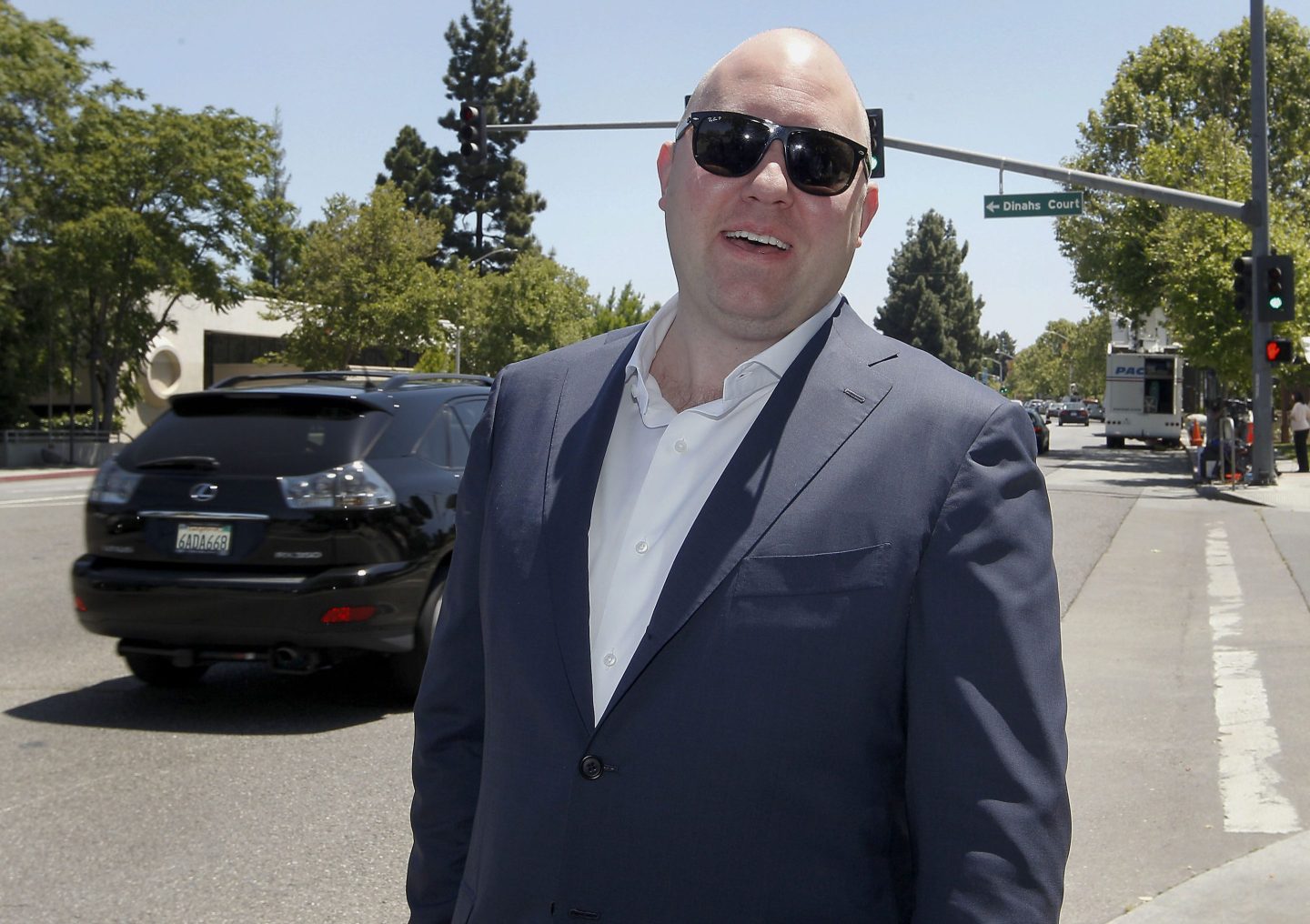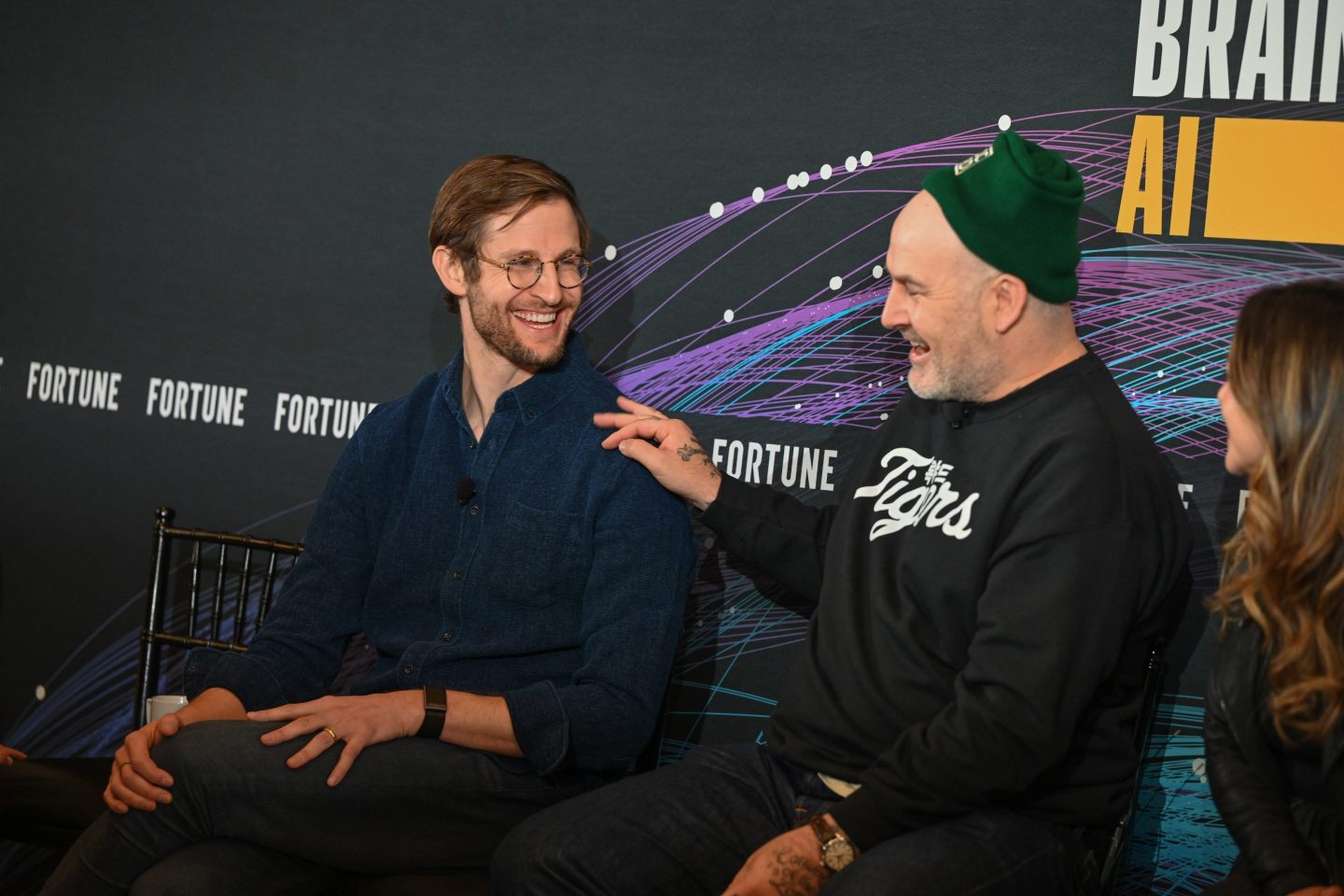Marc Andreessen has thoughts again. Following his June screed about “Why AI Will Save the World,” the a16z cofounder has now produced a 5,000-word “Techno-Optimist Manifesto,” which—as sequels tend to do—provides callbacks to the original while taking its themes to new extremes.
The titles of these essays may suggest positivity, but both are largely concerned with bashing Andreessen’s ideological opponents. More than anything else, his new manifesto is a political-economic tract—a defense of infinite growth and libertarian capitalism, and a tirade against collectivism, institutions, and risk management. It begins with the ur-populist words, “We are being lied to,” and concludes with a list of enemies.
That list includes this entry, which should amuse anyone who’s observed Silicon Valley over the past couple of decades: “Our enemy is the ivory tower, the know-it-all credentialed expert worldview, indulging in abstract theories, luxury beliefs, social engineering, disconnected from the real world, delusional, unelected, and unaccountable—playing God with everyone else’s lives, with total insulation from the consequences.”
This is not to say that Andreessen’s effective-accelerationist manifesto doesn’t espouse an attractive vision, though. It talks about harnessing “techno-capital”—“the engine of perpetual material creation, growth, and abundance”—to exploit “an intelligence takeoff that will expand our capabilities to unimagined heights” and, with AI and energy costs both becoming “too cheap to meter,” build a world where “all physical goods become as cheap as pencils.”
“We believe we should push to drop prices across the economy through the application of technology until as many prices are effectively zero as possible, driving income levels and quality of life into the stratosphere,” he writes, while somehow also strenuously denying that this amounts to Utopianism—a concept that he disapprovingly classifies alongside “Communism” and “Expertise.”
As usual, straw men abound. The whole premise of the piece is that “we are told to be angry, bitter, and resentful about technology.” Are we? Someone out there is also allegedly a fan of “technological stagnation” that would lead to environmental ruin. Who? And then there’s this: “We believe any deceleration of AI will cost lives. Deaths that were preventable by the AI that was prevented from existing is a form of murder.” Is anyone seriously calling for a deceleration of AI in science and medicine? And what about the lives that AI could just as theoretically end?
But that said, there is a grain of truth in all this—a few people do have an absolutely negative view of AI in particular. For example, as I wrote back in June when Andreessen promoted his laissez-faire stance on the subject, Signal president Meredith Whittaker believes generative AI has no positive use case whatsoever, owing to Big Tech’s capitalist incentives. I find that to be an over-the-top position based on preexisting political beliefs; a mirror image of Andreessen’s. I’m not saying I agree with him, but I can certainly appreciate why the VC wants to strike back.
The problem is that he also lays waste to everything between his own extreme position and that of extremists on the other side. “Enemy” concepts like risk management, sustainability, and tech ethics don’t necessarily preclude the quest to become “technological supermen,” as Andreessen puts it—they are modifiers that would help define the path to that end according to society’s needs and desires, and their absence would make for a terrifying and possibly terminal ride.
I’m all for techno-optimism. I crave the abundance and “leaps into the unknown” that Andreessen wants. But for him to claim that his brand of techno-optimism is “a material philosophy, not a political philosophy” is as implausible as his rejection of the “utopian” label. The course of society’s progress is inherently political, and I hope to soon read positive manifestos that suggest alternative, less fundamentalist routes to a similar destination. Just, please, make them shorter.
Want to send thoughts or suggestions to Data Sheet? Drop a line here.
David Meyer
NEWSWORTHY
Google lobbies against age verification. Google has published its preferred framework for ensuring kids are safe online, in response to various legislative proposals in the U.S. As TechCrunch reports, Google would prefer not to see mandatory age verification for online services that aren’t “high-risk” (i.e., alcohol, gambling, or porn) and argues that policymakers “should carefully consider the broader impacts of these bills and avoid side effects like blocking access to critical services, requiring people (including adults) to submit unnecessary identification or sensitive personal information.”
Baidu’s AI boast. Ernie 4.0, the latest iteration of Baidu’s large language model, is “not inferior in any respect to GPT-4,” founder Robin Li claimed today. Bloomberg notes that it’s difficult to “grade” AI models, but the AI race between China and the U.S. has “profound implications,” and matching the capabilities of OpenAI’s flagship model would put Baidu at the vanguard of the Chinese side.
Jeff Bezos’s Blue Ring. Blue Origin yesterday announced a project called Blue Ring, which sounds a bit like Amazon in space. As reported by The Messenger, Blue Ring would provide in-space logistics and delivery, as well as cloud computing capabilities. It would also provide refueling services.
ON OUR FEED
“We want to keep moving as fast paced as we can. And we don’t want to be held up where we don’t need to be held up.”
—SpaceX VP William Gerstenmaier, explaining to Bloomberg why the company is lobbying the U.S. Congress to extend a ban on safety rules for commercial human spaceflight
IN CASE YOU MISSED IT
Tim Cook crashes a Chinese e-sports tournament as Apple faces competition and censorship in its most important non-U.S. market, by Lionel Lim
LinkedIn cuts 668 jobs as a tightening job market means fewer companies are using its service for recruiting new workers, by Bloomberg
Colorado court says it was okay to search Google users’ keyword history to identify suspects in fatal arson, by the Associated Press
Bankman-Fried’s straw donor machine: Testimony reveals how customer funds were funneled to campaign contributions, by Leo Schwartz
Bitcoin soars to nearly $30,000 on rumor SEC had approved BlackRock’s spot Bitcoin ETF application, by Marco Quiroz-Gutierrez
Ford forced to cut production shift for its F-150 Lightning as rival Tesla closes in on Cybertruck EV pickup launch, by Christiaan Hetzner
BEFORE YOU GO
Return of the Glassholes. Some of the first people to get their hands on the new Meta Quest 3 have posted videos of their mixed-reality interactions with the real world. The Verge’s Sean Hollister smells potential for a wave of “attention-seekers” posting footage of strangers online, and points out that the Quest 3 doesn’t come with guidance about letting people know they’re recording—though he does concede that “if I saw someone walking into a café with a bulbous white object atop their face with multiple camera slits, I’d just automatically assume they were recording absolutely everything.”
Meanwhile, TechCrunch’s Brian Heater provides a “review-in-progress” of the Ray-Ban Meta, which doesn’t do the mixed-reality thing—it just looks like standard shades, with a camera if you’re looking closely enough—but can livestream footage of what the wearer is seeing. Perfect for influencers, he reckons. Interestingly, the sunglasses emit an audio signal to tell people that the recording has ended, which Meta apparently thinks is a way to stop people fooling the unknowingly recorded by sticking tape over the LED that shows a recording is underway.
This is the web version of Data Sheet, a daily newsletter on the business of tech. Sign up to get it delivered free to your inbox.











